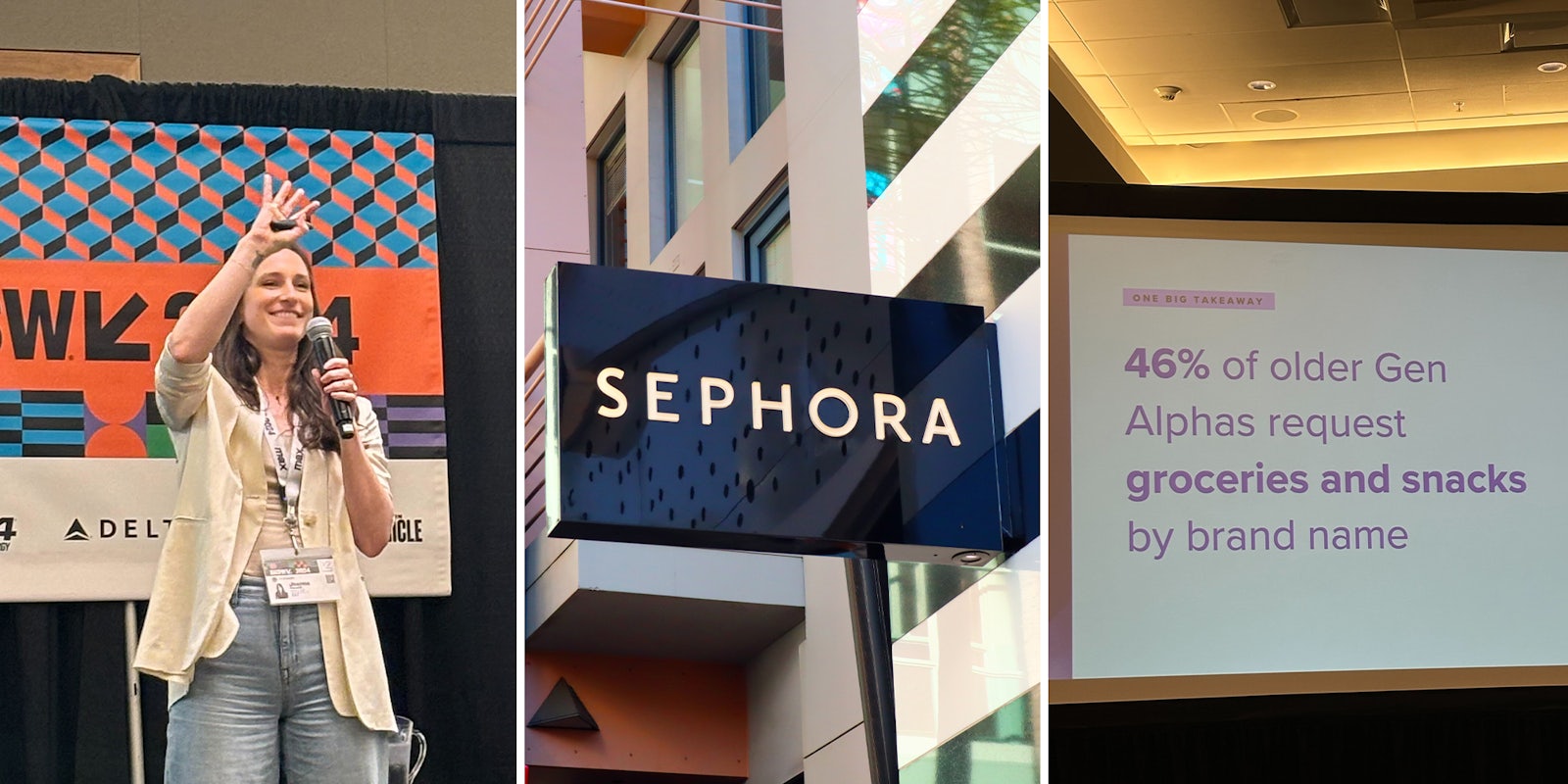The rise of “Sephora kids,” 10-year-olds ransacking the shelves at the beauty store for viral brands like Drunk Elephant and Laneige, has made its way to business research.
Many consider Generation Alpha, which includes kids born between the years 2010 and 2024, to be the next target in marketing, and a South By Southwest panel held by Morning Consult’s head of industry intelligence Joanna Piacenza only furthers that argument.
And per Morning Consult’s studies, these kids know brands unlike any other.
Piacenza’s polling research noted that Generation Alpha is quite online. In fact, she described them as “screentime pros.”
“It’s most definitive of who Gen Alpha are,” she said.
Per Morning Consult’s research, 39% of kids spend at least 3 hours online each day, while 24% spend at least 7 hours a day on their smartphones. “If they own one, and three-fourths own one by the time they’re nine,” Piacenza added.
She noted that tablets are “universal” for Gen Alpha across class and race lines, giving legitimacy to the “iPad baby” phenomenon. However, Piacenza said that once these kids acquire smartphones—those become their primary point of internet access. “It happens around the 8-10 age,” she said of the time kids become glued to their mobile devices.
These children have grown up online—rather than having a dream job like astronaut or teacher, many of them wish for a career as a creator. And many of them have already started.
For example, 7-year-old twins Koti and Haven have garnered over 4.8 million followers on TikTok as @garzacrew, where their mom posts Get-Ready-With-Me videos for the twins, befit with puffy headbands and Drunk Elephant Bronzi drops.
Creators both their own age and those older have majorly influenced Gen Alpha, as YouTube is the most popular social media platform among them. Similarly, Piacenza said today’s children have a “rosier” view of influencers than others.
“They’re not quite as jaded as Gen Z when it comes to influencers,” she said.
The top influencers among Gen Alpha, per Piacenza’s research, include Mr Beast, Blue Ivy, and the infamous Paul Brothers.
Here’s where the brands come in. Morning Consult’s research found that 46% of older Gen Alphas request groceries and snacks by brand name. Similarly, 43% of Gen Alpha parents take fast-food trips at least once a week to feed their kids.
Piacenza’s main point? These kids are decision-makers.
“They have purchasing influence,” Piacenza said. “They are a part of the conversation.”
A large part of this is how their parents, primarily of the Millennial generation, are raising them. Gen Alpha’s parents are more likely to talk to their kids about finances than previous generations—and they’re including them in their financial decisions. Per Piacenza’s polls, 28% of parents eat different foods than their Gen Alpha children at family dinner—talk about picky eaters.
“Millennials are doting on their children in a way that parents before them haven’t,” she said.
Piacenza noted that 48% of Gen Alpha’s parents are “financially fraught,” citing “one and a half” recessions, the pandemic, and historic inflation. “Gen Alpha parents are very stressed out,” she said, a parent to a 10-month-old herself.
Through Morning Consult’s polling research, Piacenza said that Gen Alpha is going to be more fiscally conservative and continue the patterns their parents pass on to them, like choosing generic over name brands.
However, their brand selectivity seems like it will alter our culture and economy—and looking at today’s average Sephora consumer, it appears it already has.
As Piacenza put it, “They’re going to be opinionated about your brand before you’d expect them to.”


